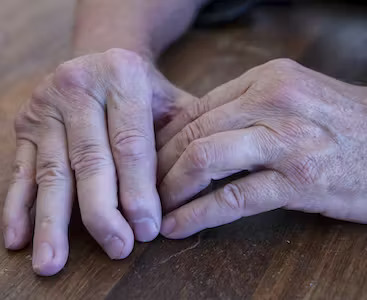Diseases

Rheumatoid Arthritis
Ayurveda offers a holistic approach to managing rheumatoid arthritis (RA), focusing on reducing inflammation, alleviating pain, improving joint mobility, and enhancing overall well-being. It aims to address the underlying imbalances in the body that contribute to the development of RA. Here are some key aspects of Ayurvedic management for rheumatoid arthritis:
1. Balancing Doshas: Ayurveda recognizes that imbalances in the doshas (Vata, Pitta, and Kapha) contribute to the development of rheumatoid arthritis. Treatment involves identifying the dominant dosha involved and restoring its balance through diet, lifestyle modifications, herbal remedies, and therapies.
2. Dietary Recommendations: Ayurvedic dietary recommendations for RA generally focus on reducing inflammation and supporting digestion. A diet that includes warm, cooked foods, easily digestible proteins, whole grains, fresh fruits, vegetables, and healthy fats is often recommended. Avoiding processed and fried foods, excessive salt, and dairy products may be advised.
3. Herbal Remedies: Ayurvedic herbs and formulations are used to manage RA symptoms. Some commonly used herbs include Turmeric, Ashwagandha, Guggulu, Shallaki (Boswellia), and Ginger. These herbs have anti-inflammatory, analgesic, and immune-modulating properties that can help reduce joint pain, swelling, and inflammation.
4. Panchakarma Therapy: Panchakarma therapies, such as Abhyanga (therapeutic massage), Swedana (herbal steam therapy), and Basti (medicated enemas), can be beneficial in managing RA. These therapies aim to eliminate toxins, reduce inflammation, improve joint mobility, and promote overall well-being.
5. External Therapies: External therapies like Elakizhi (herbal leaf poultice massage), Podikkizhi (herbal powder massage), and Pizhichil (oil bath) can provide relief from pain, stiffness, and inflammation in the joints. These therapies help improve circulation, promote relaxation, and enhance joint mobility.
6. Lifestyle Modifications: Managing RA requires adopting a healthy lifestyle. Regular exercise, such as gentle yoga or walking, is beneficial for maintaining joint flexibility and overall well-being. Adequate rest, stress management techniques, and maintaining a consistent daily routine are also emphasized.
It's important to consult with a qualified Ayurvedic practitioner who can provide personalized recommendations and treatment protocols based on your specific condition and needs. Ayurveda can be used as a complementary approach alongside conventional medical care for rheumatoid arthritis, and it's important to inform all healthcare providers about the treatments you are undergoing.
